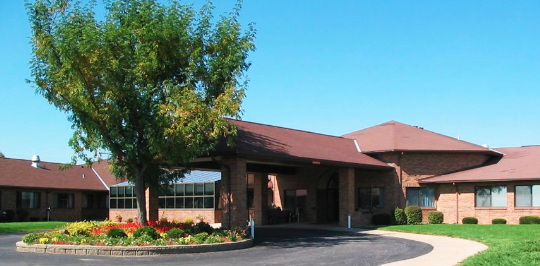If you’re looking for assisted living, you know you can’t afford to make a poor decision when the stakes are so high. This is often a very stressful time for all family members and too often, just finding a place to start is tough. Selecting a senior living community can be made easier if you plan and gather information before a sudden health change or a chronic condition like Alzheimer’s which will worsen with time. So what mistakes should a family avoid?
1. Waiting too long. It’s “tough stuff” to accept that our bodies and minds change over time. It’s tough with our parents and probably tougher with our own situation. It seems that most people have no plan in place for the “what if”. If there was sudden health even what rehab facility would you prefer? If the health event would cause a longer-term stay; where would that be? What about dementia? Start obtaining information about senior living today. Eventually, this may well happen — don’t get blindsided. Discuss these issues with loved ones. This is tough stuff
2. Not researching what types of senior communities are available. In Central Illinois, there are six types of senior living communities: Endowment Homes, Continuing Care Retirement Communities (CCRC), Assisted Living, Supportive Living, Memory Care, and Independent Living. This provides a full range of living styles from apartment living to communities having skilled care (nursing home) on site.
3. Not being realistic about finances. Take a realistic look at income, if you have long-term care insurance and assets; record those numbers. Match your finances to the senior communities available. In this writer’s opinion, it is a terrible disappointment to look at communities that are not within your budget. This just leads to heartbreak.
4. Putting too much value in what a friend says. Everyone’s situation is different. While it is very nice if your loved one knows people in the community, talk with them, learn but know everyone’s situation is different.
5. Not considering current health and future Needs. Certain medical conditions will most likely result in future needs. For example, 50% of Parkinson’s patients may develop dementia. Do your homework on current and trending medical conditions. Research which communities can best handle that condition and whether or not your loved one could stay within that senior community or possibly need to move to another community in the future.
6. Choosing a senior community because it fits your tastes, not your loved ones. He/she is the person who will be living in the community and will be there most of the time. You would be visiting for short time periods, and many times these visits are planned. So, a bit more travel to see a loved one is ok. Your loved one needs to be as comfortable as possible with their living environment.
7. Not reading the community’s contract. Know what your loved one is signing for. Senior community contracts are usually easier to read than some contracts, but they are still a contract with obligations. Simple questions are: What does the apartment cost? What is the cost of care? Can the level of care increase causing the costs to increase? If so how? Is there a separate meal cost? Are property taxes payable? Some people ask their attorney to review this contract.
8. Personally signing the contract for your loved one. Unless you want to be responsible for your loved one’s bill, do not personally sign the senior living contract. This is a legal matter and you should seek legal advice.
As you see this process may be a bit more involved than one might think at first glance. There are resources available www.Medicare.gov has “star ratings” for many types of senior communities and at www.LivingByYourDesignInc.com. Gather information before a crisis so that you can be better prepared if you need to make a sudden decision.
Eight Mistakes to Avoid When Looking at Senior Living Communities
Peace of Mind
Love & Compassion
ARTICLES SUBJECTS
OUR FACILITIES
Lacon Rehab and Nursing
St. Joseph’s Home of Lacon is a skilled nursing facility located just north of Peoria, IL.
St Augustine Manor
St. Augustine Manor is a not-for-profit independent living community for seniors 55 years of age and older.
Snyder Village
Founded in 1988, Snyder Village's mission is to provide for the physical, emotional, and spiritual needs of persons requiring assistance…





